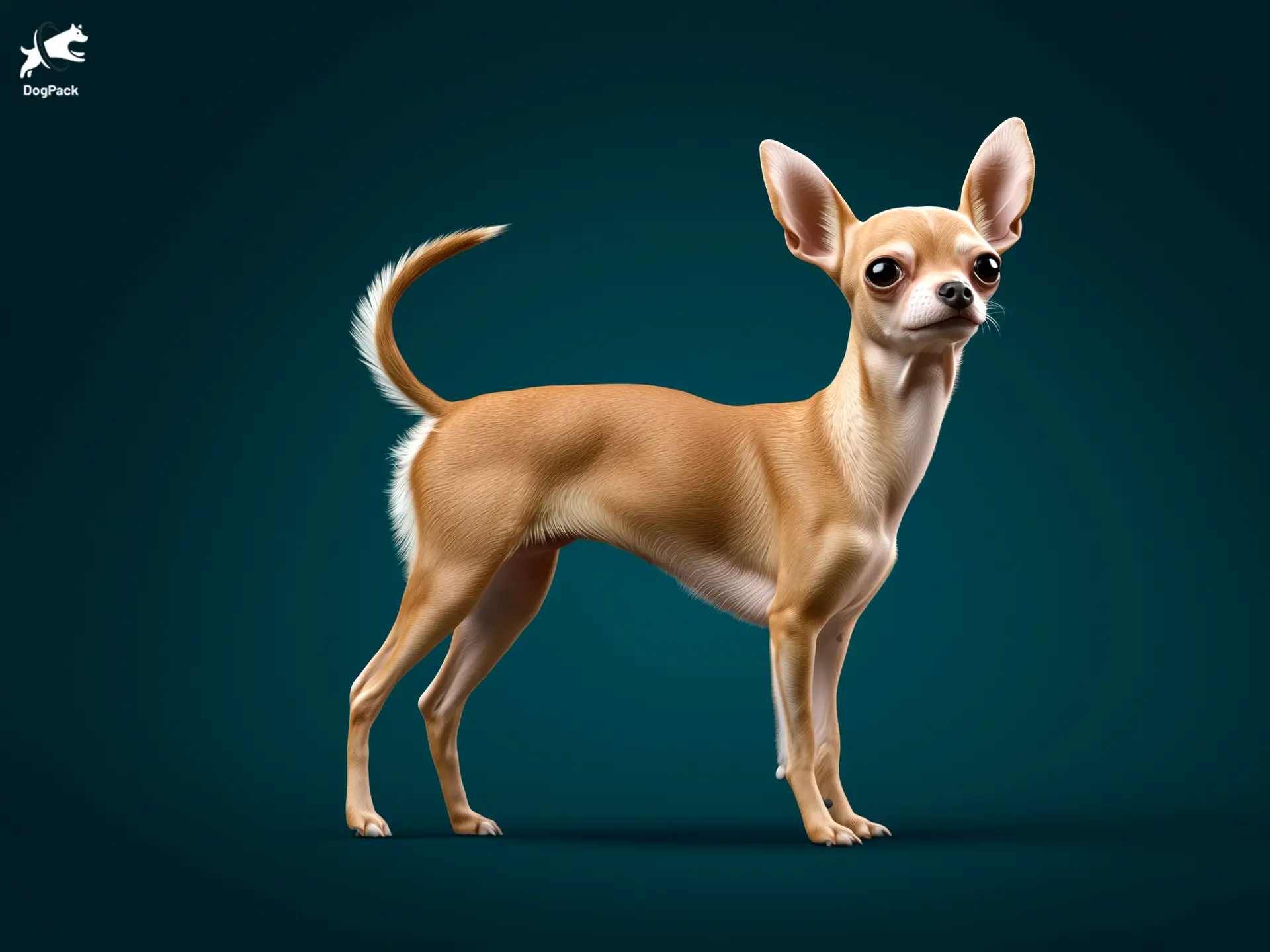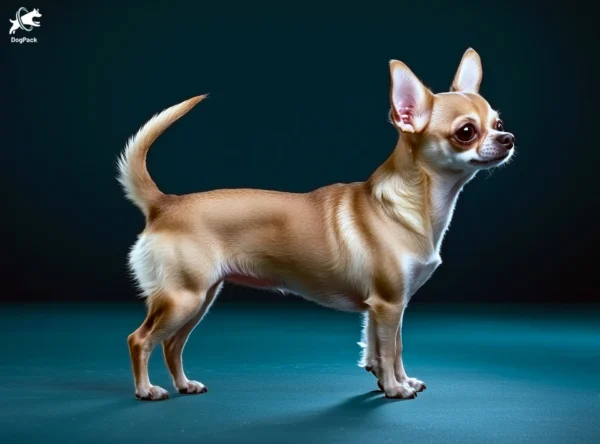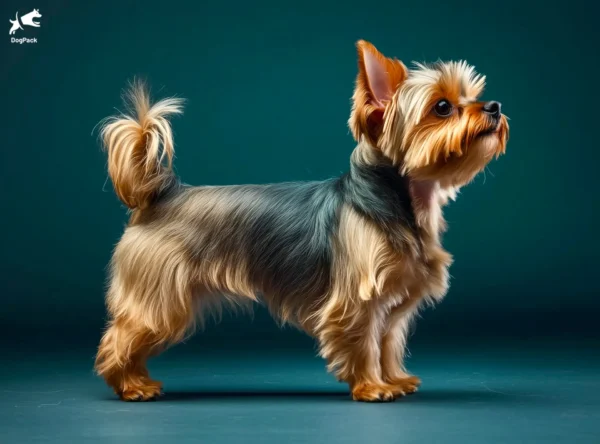Deer-Headed Chihuahua Dog Breed Info & Overview
The Deer-Headed Chihuahua, with its elegant features and lively spirit, is a small dog full of personality. Resembling a young deer, these unique Chihuahuas stand out with their elongated heads and keen, alert expressions. Known for their loyalty and affectionate nature, Deer-Headed Chihuahuas make devoted companions, bringing warmth and devotion to those lucky enough to call them family.
Characteristics
Pictures
Breed History
The Chihuahua is one of the oldest dog breeds in the Americas, with roots tracing back to ancient civilizations in Mexico. Artifacts and folklore suggest that these tiny dogs were companions to the Toltec and Aztec peoples, revered for their mystical and healing abilities.
While the standard Chihuahua is well-known, the Deer-Headed Chihuahua is a variation that stands out due to its distinctive head shape resembling that of a deer. This variety gained popularity in the early 20th century, although it is not officially recognized as a separate breed by major kennel clubs.
Despite the lack of official recognition, Deer-Headed Chihuahuas have captured the hearts of many due to their unique appearance and spirited personalities. They continue to be beloved companions, carrying on the rich heritage of their ancient ancestors.
Temperament, Personality
Deer-Headed Chihuahuas are known for their bold and confident personalities packed into a tiny frame. They are fiercely loyal to their owners and can be quite protective, often acting as little watchdogs despite their small size.
These dogs can be affectionate and loving with their families but may be reserved or cautious around strangers. Early socialization is key to ensuring they develop a well-rounded temperament and interact positively with new people and environments.
When it comes to children and other pets, Deer-Headed Chihuahuas can coexist peacefully if properly introduced. Due to their small size, they can be fragile, so supervision with young children is important to prevent accidental injuries.
Physical Characteristics
The Deer-Headed Chihuahua is distinguished by its elongated head shape, resembling that of a young deer. They have a longer snout, larger ears, and a more slender jawline compared to their Apple-Headed counterparts, giving them a graceful and alert appearance.
Their eyes are expressive and can range in color from dark brown to lighter shades. Their bodies are small yet well-proportioned, with a lean build that contributes to their agile movements. Coats can be either short-haired or long-haired, and come in a variety of colors including fawn, black, chocolate, and more.
Despite their delicate looks, Deer-Headed Chihuahuas are sturdy for their size. They typically weigh between 4 to 10 pounds (2–5 kg) and stand 8 to 12 inches (20–30 cm) tall. Their distinctive appearance sets them apart and adds to their charm.
Health Issues
Deer-Headed Chihuahuas are generally healthy dogs but can be prone to certain breed-specific health issues. One common concern is dental problems; due to their small mouths, they may experience overcrowded teeth, leading to tartar buildup and gum disease.
Another health issue to be aware of is patellar luxation, where the kneecap can dislocate. Regular veterinary check-ups and maintaining a healthy weight can help mitigate this risk. Eye problems such as glaucoma and progressive retinal atrophy can also occur in this breed.
Ensuring your Deer-Headed Chihuahua receives regular veterinary care, a balanced diet, and appropriate exercise can promote a long and healthy life. Early detection and preventive measures are key to managing potential health concerns effectively.
Grooming Needs
Deer-Headed Chihuahuas are relatively low-maintenance when it comes to grooming. Short-haired varieties require minimal brushing, perhaps once a week, to remove loose hair and keep their coat shiny. Long-haired Chihuahuas need brushing a few times a week to prevent tangles and mats.
Regular dental care is essential for this breed due to their predisposition to dental issues. Brushing their teeth several times a week can help prevent tartar buildup and gum disease. Additionally, their nails should be trimmed monthly to prevent overgrowth and discomfort.
Bathing can be done as needed, typically every few months, unless they get into something messy. Be cautious not to over-bathe, as it can dry out their skin. Ear checks are also important to prevent infections; clean them gently with a vet-recommended solution.
Exercise Requirements
Despite their small size, Deer-Headed Chihuahuas have moderate energy levels and enjoy regular activity. A daily walk of 20 to 30 minutes is sufficient to keep them physically fit and mentally stimulated. They also appreciate playtime indoors, which can be a good supplement.
Interactive games like fetch or tug-of-war can be enjoyable for these little dogs. Puzzle toys and training sessions also provide mental exercise, which is important for preventing boredom and associated behavioral issues.
It’s important to avoid overexertion, especially in extreme temperatures, as Deer-Headed Chihuahuas can be sensitive to cold and heat. Always monitor your dog during exercise to ensure they’re comfortable and safe.
Training Tips
Training a Deer-Headed Chihuahua can be a rewarding experience, but it requires patience and consistency. They are intelligent and can learn commands quickly, but may also display a stubborn streak. Positive reinforcement methods work best with this sensitive breed.
Early socialization is crucial to help them become well-adjusted adults. Exposing them to different people, environments, and other animals can reduce tendencies toward shyness or overprotectiveness. Short, engaging training sessions will keep their attention without overwhelming them.
Housebreaking can sometimes be a challenge due to their small bladder size. Establishing a consistent routine and using crate training can aid in this process. Remember to be patient and avoid harsh corrections, as they respond better to gentle guidance.
Nutrition, Diet
Feeding a Deer-Headed Chihuahua requires attention to their specific nutritional needs due to their small size and fast metabolism. High-quality dog food formulated for small breeds is recommended, as it provides the necessary nutrients in a calorie-dense form.
Portion control is essential to prevent obesity, which can lead to health issues like joint problems and diabetes. Typically, an adult Deer-Headed Chihuahua will consume between 1/4 to 1/2 cup of dry kibble per day, divided into two meals. The exact amount depends on their age, weight, and activity level.
Monitor their weight and adjust food intake accordingly. Due to their risk of hypoglycemia (low blood sugar), especially in puppies, regular feeding times are important. Consult with a veterinarian to create a diet plan tailored to your dog’s specific needs.
Adoption, Breeders
If you’re considering adding a Deer-Headed Chihuahua to your family, it’s important to find a reputable breeder or consider adoption. Responsible breeders will provide health clearances for the parents and allow you to meet the puppy’s mother and siblings.
Adoption is a wonderful option, as many Chihuahuas in need of homes can be found through rescue organizations. The Chihuahua Club of America offers resources for breed-specific rescues and information on responsible breeding practices.
Avoid purchasing from pet stores or online ads without proper verification, as these sources may support puppy mills. Take the time to research and ask questions to ensure you’re bringing home a healthy and well-adjusted Deer-Headed Chihuahua.
Family Pet?
Deer-Headed Chihuahuas can make delightful family pets for households that understand their needs. They form strong bonds with their owners and enjoy being involved in family activities. Their small size makes them suitable for apartment living and homes with limited space.
With children, particularly younger ones, supervision is necessary. Due to their fragility, Deer-Headed Chihuahuas can be easily injured by rough play. Teaching children how to interact gently and respectfully with the dog is essential for a harmonious relationship.
They can coexist with other pets, especially if raised together. However, they may exhibit territorial behavior towards larger dogs. Early socialization and proper introductions can help minimize conflicts and promote a peaceful household.
Right For You?
If you’re looking for a devoted companion who thrives on attention and can adapt to small living spaces, the Deer-Headed Chihuahua might be the perfect match. Their manageable exercise needs and grooming requirements make them suitable for busy individuals or seniors.
However, they do best in homes where they won’t be left alone for long periods, as they can develop separation anxiety. Their sensitivity to extreme temperatures also means they need to be indoor dogs with a comfortable environment.
Potential owners should be prepared to invest time in training and socialization to bring out the best in this breed. If you’re ready for a loyal and spirited companion, a Deer-Headed Chihuahua could be a wonderful addition to your life.
Conclusion
Deer-Headed Chihuahuas are charming little dogs with big personalities. Their unique appearance and affectionate nature make them stand out among small breeds. While they may require careful handling and consistent training, the rewards of their companionship are immense. If you value a loyal, spirited companion who will stay by your side, the Deer-Headed Chihuahua might just be the perfect fit for you.
FAQs
-
Do Deer-Headed Chihuahuas need a lot of socialization?
Yes, socializing Deer-Headed Chihuahuas from a young age is essential to help them feel comfortable around strangers and other pets. Positive experiences with different environments and sounds can make them more confident.
-
How well do Deer-Headed Chihuahuas handle cold weather?
Due to their small size and thin coats, Deer-Headed Chihuahuas are sensitive to cold temperatures. It’s best to keep them indoors during cold weather or provide them with a warm sweater for short outdoor trips.
-
Are Deer-Headed Chihuahuas prone to health issues?
Deer-Headed Chihuahuas are generally healthy but can be prone to dental issues and patellar luxation. Regular vet visits, a balanced diet, and good dental care can help manage these risks effectively.
-
Do Deer-Headed Chihuahuas need special diets?
While they don’t need a special diet, Deer-Headed Chihuahuas benefit from high-quality, small-breed dog food. Their tiny size means portion control is essential to prevent obesity, and regular dental chews can aid oral health.
-
What types of activities do Deer-Headed Chihuahuas enjoy?
They enjoy short walks, interactive toys, and indoor games. Despite their small size, they’re playful and benefit from mental stimulation, making puzzle toys and training sessions excellent ways to keep them engaged.
Breed Ratings
Deer-Headed Chihuahuas are smart and can learn commands quickly but may be stubborn, requiring patient training methods.
These dogs are very playful and enjoy interactive games, making them entertaining companions for active owners.
With moderate energy, they need daily walks and playtime but are also content to relax with their owners.
Shedding is low to moderate; regular brushing helps manage loose hair, especially in long-haired varieties.
They have a low prey drive but may chase small animals; supervision outdoors is recommended.
Grooming is relatively easy, requiring minimal effort, especially for short-haired Deer-Headed Chihuahuas.
Training can be moderate due to occasional stubbornness; positive reinforcement yields the best results.
They prefer not to be left alone and may develop separation anxiety if isolated for long periods.
Prone to frequent barking, they make good watchdogs but may need training to control excessive noise.
Minimal drooling makes them a tidy choice for owners who prefer a clean environment.
They can get along with other dogs if properly socialized but may be territorial.
Generally healthy with proper care, though prone to certain breed-specific health issues.













